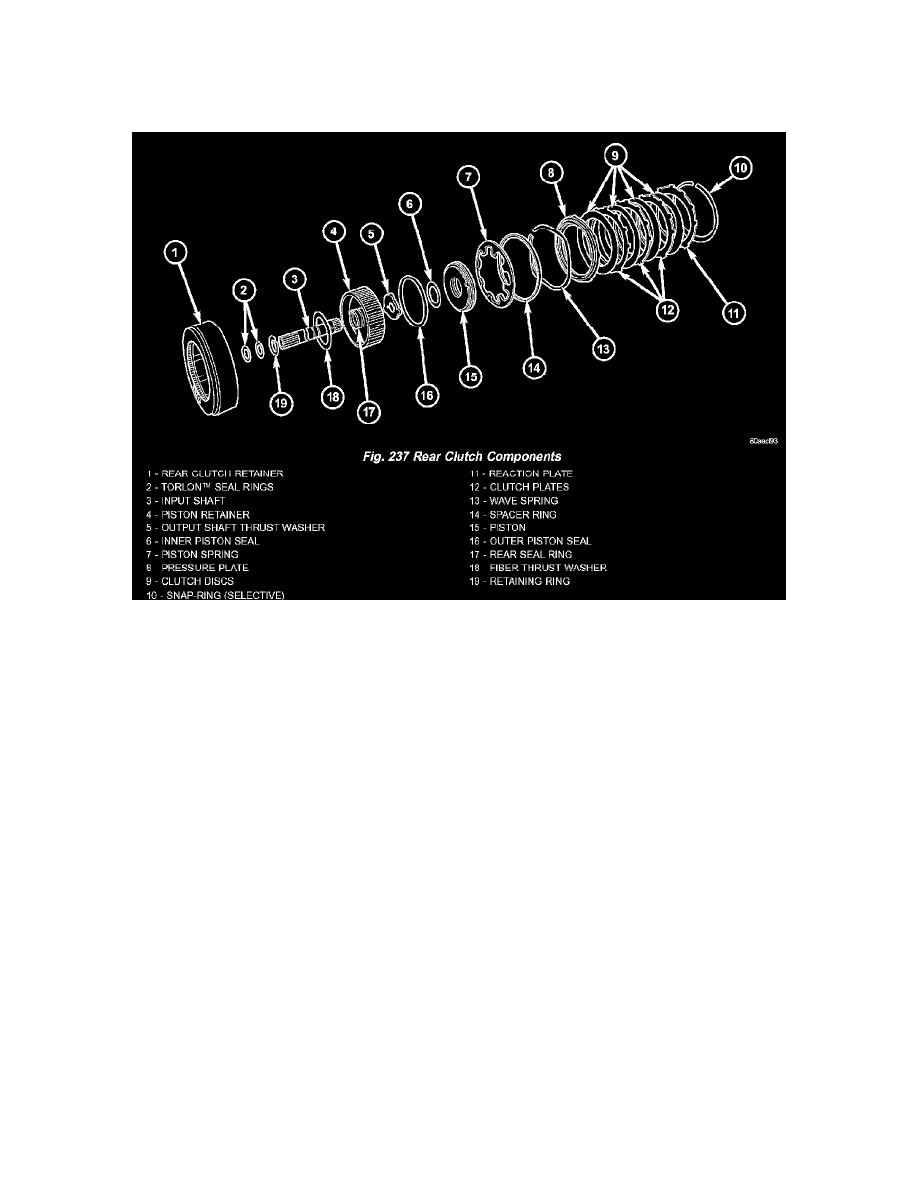RAM 1500 Truck 4WD V8-5.9L VIN Z (2002)

Clutch: Description and Operation
Rear Clutch
46RE - AUTOMATIC TRANSMISSION
REAR CLUTCH / DESCRIPTION
The rear clutch assembly (Fig. 237) is composed of the rear clutch retainer, pressure plate, clutch plates, driving discs, piston, Belleville spring, and
Snaprings. The Belleville spring acts as a lever to multiply the force applied on to it by the apply piston. The increased apply force on the rear clutch
pack, in comparison to the front clutch pack, is needed to hold against the greater torque load imposed onto the rear pack. The rear clutch is directly
behind the front clutch and is considered a driving component.
NOTE: The number of discs and plates may vary with each engine and vehicle combination.
OPERATION
To apply the clutch, pressure is applied between the clutch retainer and piston. The fluid pressure is provided by the oil pump, transferred through the
control valves and passageways, and enters the clutch through the hub of the reaction shaft support. With pressure applied between the clutch retainer
and piston, the piston moves away from the clutch retainer and compresses the clutch pack.
This action applies the clutch pack, allowing torque to flow through the input shaft into the driving discs, and into the clutch plates and pressure plate
that are lugged to the clutch retainer. The waved spring is used to cushion the application of the clutch pack. The snap-ring is selective and used to adjust
clutch pack clearance.
When pressure is released from the piston, the spring returns the piston to its fully released position and disengages the clutch. The release spring also
helps to cushion the application of the clutch assembly. When the clutch is in the process of being released by the release spring, fluid flows through a
vent and one-way ball-check-valve located in the piston. The check-valve is needed to eliminate the possibility of plate drag caused by centrifugal force
acting on the residual fluid trapped in the clutch piston retainer.
